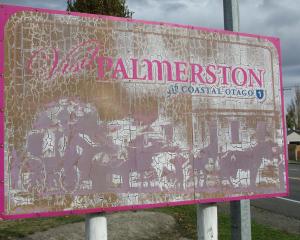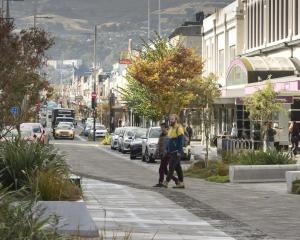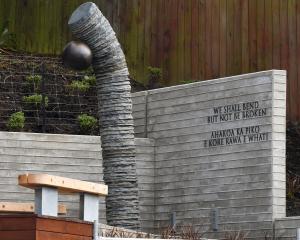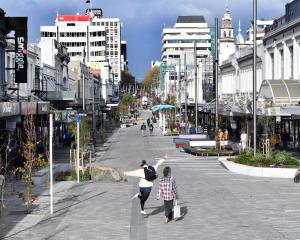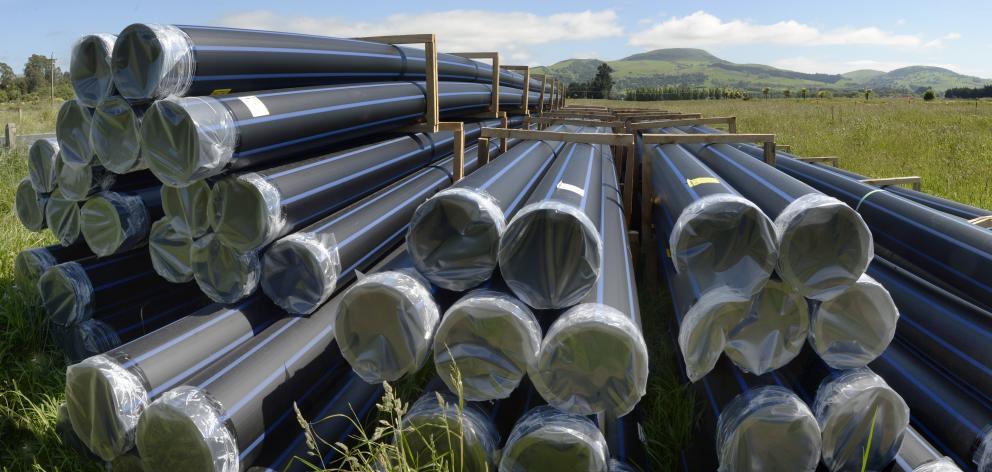
Otago towns, the pipes the pipes are calling, from reservoirs and down towards the sea ...
The first issue with the three waters debate is that it isn’t about waters. It is about pipes and other infrastructure.

The water is a natural treasure of New Zealand. The pipes are bought and paid for by local ratepayers. There is no sense in which they belong to anyone other than the local people, who paid for them so that all citizens could have piped fresh water, piped storm water and pipes taking our sewage to be treated and released.
Once we accept that it is the pipes, we can talk about who should own them. Usually those who pay for something own the something. If the Government removes ownership of assets we would call this nationalisation, something which tends to be done in unstable and desperate countries with a weak grip on democracy.
What actually happened in the current Government proposal was that we were told if the will of the people as expressed by their local government representatives did not want to give them up Government would not require them to. However it turns out that when local government representatives were not all supportive we were told that it would happen by force.
It appears that several thoughts were behind this backtracking manoeuvre.
The notion of nationalising the pipes was proposed to solve the problem that some communities are struggling to produce clean water in and to dispose of dirty water appropriately.
The Government could sort this problem by providing funds and if necessary taking over the operation of the pipes in such areas.
However the Government has decided that the 80% of local authorities in New Zealand who are looking after themselves will have to have their pipes taken over also, since the economies of scale sold as an inevitable result of a centralised structure would not happen.
If Bruce Munro’s "voices" (ODT, 10.9.22) are correct, there is also a fear that a nationalised pipe ownership structure could be sold to private interests. An answer to this, according to the voices, could be for mana whenua to be co-owners of the pipes, the assumption being they would never allow these assets to be sold.
Both these assumptions founder on one basic truth. The Government can change anything it wants and fund anything it wants at whatever level it wants. It can also change the ownership structure of anything in New Zealand, as it knows, since it is doing precisely that with the pipes.
Sharing ownership of nationalised assets with mana whenua does not take them out of the Government’s clutches. While we have a democracy where all New Zealanders have one vote for the government who will form a majority, the elected government on the day can do what it will.
As for economies of scale, these can of course happen, even when the Government is involved. Think Pharmac for example. However even if Pharmac can get drugs more cheaply as a central purchasing authority, the Government can refuse to provide Pharmac with the funds it needs to allow us to have drugs which are taken for granted as available in most other comparable countries.
The Government may not starve the new pipe owners of money, since the money will apparently come from the same ratepayers as it always did.
There will be a major difference however: the rates will be required of us by an owner who is entirely unaccountable to those it rates. Any transparency is unlikely, since when the Government takes over there appears no temptation to engage in sharing what is going on. (Think the new health authority and its chief providing a comment along the lines of he was not put on this earth as some sort of occupational therapy for journalists when he was asked for answers to some basic questions.)
The backtrack seems also to have came about as a result of the Government believing that local authorities think short term and keep kicking the can down the road when it comes to renewing pipes and improving the quality of what flows through them.
While this may have happened in the past, the Government has been putting out an ever-increasing series ofrules intended to improve water quality.
Local authorities are spending millions, attempting to comply with these. Any deficiencies in the outcomes are as likely to be because of the confusing nature of the rules and the ever changing requirements as they are to be because local authorities are dragging their feet.
When voting comes, and all the people make their choices, if they are gone, as gone they well may be ...
It will be no comfort saying an Ave for previous politicians. We need good answers to the problems of some communities struggling to cope with the pipes needed for healthy water and a healthy environment.
Let’s ask the right questions now.
— Hilary Calvert is a councillor on the Otago Regional Council but is not standing for re-election.

